Dr. Shireen Al-Adeimi is a Professor of Language and Literacy at Michigan State University and a Non-Resident Fellow at the Quincy Institute for Responsible Statecraft. Michigan is key to Biden’s presidential run, where Muslim and Arab-Americans in the state have withheld support from Biden due to his full backing of Israel’s genocidal project in Gaza.
Talia Baroncelli
Hi, I’m Talia Baroncelli, and you’re watching theAnalysis.news. Joining me today is Shireen Al-Adeimi, who will be speaking to me about Gaza as well as the U.S. and U.K.’s unlawful strikes against Yemen.
If you’d like to support the work we do, you can go to our website, theAnalysis.news, and hit the donate button at the top right corner of the screen. Make sure you get onto our mailing list and like and subscribe to the show wherever you watch it, be it on YouTube, Spotify, or Apple. Thanks again for all of your support, and see you in a bit with Shireen Al-Adeimi.
Joining me now is Shireen Al-Adeimi. She is a professor of language and literacy at Michigan State University and is a non-resident fellow at the Quincy Institute for Responsible Statecraft. Thanks a lot for joining me again, Shireen.
Shireen Al-Adeimi
Thanks for having me, Talia.
Talia Baroncelli
Well, I wanted to speak to you today about two very important issues, that being Yemen and Gaza. I think what we’ve been seeing recently is U.S. and U.K. leaders, as well as the media, trying to disentangle these two issues. The Houthis themselves have said that if there were to be a ceasefire, they would stop attacking commercial vessels in the Red Sea. Yet, the media seems to purposely avoid reporting on this really important fact. I wonder if that’s landed with people, if people are aware of this discrepancy between the cause of the Houthis and solidarity for Palestinians, as well as what the media narrative has been so far.
Shireen Al-Adeimi
I think people who are paying attention know that this is a direct consequence. That all of what Ansar Allah is doing in the Red Sea and in the Gulf of Aden is a direct response to what’s happening in Gaza. It comes at a time when Ansar Allah, we’re very close to finalizing a peace deal with Saudi Arabia.
As you know, the war in Saudi Arabia has lasted since 2015. There was a tenuous ceasefire and negotiations that were happening and an easing of the blockade and all of that. An agreement was very close to being signed. For them to now disrupt Israel-bound ships is a direct response to what is happening in Gaza. They have made that very clear. They had not disrupted international shipping or any shipping at all throughout the nine years, even when they could have. Their actions right now in the Red Sea are a direct response to Gaza, but I think there’s a wilful ignorance and an obfuscation of what the purpose is because it’s just easier to paint all these as yet another Iran-allied “group” or “Iran proxy” as creating chaos with no purpose, which, of course, we know that’s not how these actors in the region behave. They’re independent and autonomous, and they have clear goals, but it’s just a matter of who’s listening to these goals and who isn’t.
Talia Baroncelli
Well, perhaps one reason they’re doing this is to take away from the fact that the U.S. has not been exercising its leverage over Israel to ensure that there’s a ceasefire and that there’s humanitarian aid going into the Gaza Strip. So they’re trying to deflect and place blame on the Houthis, but also try to shift the narrative there.
Shireen Al-Adeimi
Absolutely. The U.S. keeps saying that they have no leverage with Israel, just like they had been saying we have no leverage with the Saudis. Meanwhile, they’re providing diplomatic cover for both groups. I’m going to draw these parallels between how the U.S. behaves with Israel and the other allies, Saudi Arabia and the U.A.E. They provide diplomatic cover. We’ve seen the veto at the UN Security Council for a ceasefire that the U.S. kept opposing, the supply of weapons, saying that we’re chiding them privately about a ceasefire but not saying anything about it publicly. All of these trips that [Antony] Blinken has been taking to the Middle East and not being productive at all and repeating the Israeli line that they have the right to defend themselves or that they feel bad about the deaths in Gaza, but as though these are not a direct consequence or perpetrated by the state of Israel, which is the U.S.’s biggest ally. It’s absolutely deflection.
I think the other deflecting point here is that when they started bombing Yemen in response to the Houthi’s actions in the Red Sea, it was the day that South Africa brought forth its case in the ICJ, the very same day that the world was paying attention to what South Africa was seeing in this international court, the U.S. and the U.K. began bombing Yemen instead of calling for a ceasefire in Gaza.
Talia Baroncelli
Yeah, we will speak about those strikes, which are clearly unlawful. But I did want to point out something. Sabrina Singh, who is the Pentagon spokesperson, recently talked about how concerned she is that North Korea is giving weapons to Russia to attack innocent Ukrainian civilians. But obviously, her concern doesn’t extend to the U.S. supplying Israel with weapons to kill innocent Palestinian civilians. So there’s a clear double standard there.
There was a reporter who was pressing her on the calls that the Biden administration has made for Israel to have more so-called “calibrated approach” and whether their calls for a “calibrated approach” have actually been working. She said, “Oh, well, Israel has said that they will be taking some of their brigades out of Gaza,” as if that is a way to address the mass killings, ethnic cleansing, and enforceable displacement. As you said, they’re just talking out of their…
Shireen Al-Adeimi
Both sides of their mouth. [Laughter]. They’re talking out of both sides of their mouth because their stated views are in such misalignment between what they’re saying and what they’re doing.
If you’re going to say that you’re concerned about civilian casualties, then call for an end to perpetrating violence against civilian casualties. But no, they won’t do it. If you’re going to take at face value what Israel says, but you’re going to question the [inaudible 00:06:22] Health Ministry, for example, and sow doubt about even the number of casualties, only to then admit that they were right all along. All of this is playing cover for the Israelis, supporting them in this action. It’s not just that the U.S. has said, “Oh, we just don’t know what to do.” This is a genocidal project that can only be enacted with full support from the United States. It’s allowed to continue because of the United States’ support for this genocidal project. The goals are very aligned. Even just saying we need a two-state solution when you know that the Israelis have never called for a two-state solution and have outwardly rejected a two-state solution and yet are still thinking that we can repeat this line about, “Well, we’re going to work for a two-state solution,” meanwhile not recognizing or not willing to recognize that this is not even on the table.
It’s just a matter of playing politics and obfuscating reality. I think Trump would have been more honest about it, just as the Republicans tend to be. The outcome is the same, but you have this tendency with Democratic presidents, including Biden, to couch these genocidal actions in language that makes no sense given the actions that are perpetrated against these people, against a billion people in Gaza and elsewhere.
Talia Baroncelli
Yeah, of course. There’s a disconnect between what the Israeli officials are saying and the facts on the ground. Although sometimes they do correspond, like Yoav Gallant saying that they’re fighting human animals and that they’re going to flatten the place. But even recently, Israel said that they wanted to create a buffer zone in Gaza in order for Israeli citizens who used to live close to the border with Gaza to be able to move back there because Israel also has, like many other countries, a housing issue. They’re paying a lot of money to house people in hotels, people who live along the border areas, and who can’t move back right now.
They’re saying that another solution would be to set up a buffer zone. But that is against international law. You can’t just flatten land and then grab that land, saying that it would be in the creation of a buffer zone. Unfortunately, Blinken has said we would maybe accept some transitional approach there, and we wouldn’t necessarily oppose that. That’s obviously setting a very dangerous precedent.
Well, you did mention the horrible rhetoric of the Republican Party, and especially Trump, when it comes to Muslims and to people in the Middle East. But if you look at the policies of the Biden administration and the Democratic Party, they virtually amount to having the same outcome as that of Republican policies. The rhetoric is just different. So, given that you’re based in Michigan, how would you say Muslims and Arab Americans in Michigan are responding to what they’re seeing in Gaza, the mass killings, as well as to the unlawful strikes in Yemen?
Shireen Al-Adeimi
Oh, there’s a lot of anger and frustration and indignation. Biden barely won the state of Michigan in 2020. Arabs and Muslims came in support of Bernie Sanders in the primaries. When Bernie was not on the Democratic ticket in the end, they forced themselves, many will tell you, to vote for Biden in order to avoid Trump. We knew that the Muslim ban had occurred under Trump. People didn’t want to go back to those days. Arabs and Muslims here in this region, many of them have aligned with the Democratic Party more closely than the Republicans anyway. But he won by 12,000 votes in 2020. Apparently, there’s no legal path to victory without Michigan, so this is a really, really important state. Yet, Biden has completely ignored what his constituents in the United States, specifically in Michigan, have been calling for: a ceasefire.
Since October 7, people have been calling for a ceasefire, for the U.S. not to provide support for the Israeli response, and for the U.S. not to provide diplomatic cover. Biden has done nothing but go against the wishes of his own constituents. The consequence of that is that he’s not even able to meet with members of the community without backlash. His advisor was supposed to meet with people in the community today, which was canceled. Because even the idea of meeting leaders in the community, meeting with Biden or his advisors, these people are going to be seen as traitors, given what’s happening to our brothers and sisters in Gaza.
The issue of Palestine unites us in a way that so many other issues do not. I think Biden is either not understanding that dynamic or surrounding himself with people who are telling him, “Oh, they’re just going to forget about it.” He’s trying to position himself as like, “Well, I’m not Trump,” that’s not going to work anymore because nothing is worse than genocide. That’s what people here have been saying. Absolutely nothing is worse than genocide. The Muslim ban is not worse than genocide. Why would we vote for somebody who has aligned himself so strongly in line with a state that is being accused of committing genocide? I think he’s wilfully ignorant or just hoping that they’re going to move on and forget about it, but I think he’s going to be in for a surprise. Again, this should not be a surprise. I also think it’s a bit too late now to try to make amends to the Arab and Muslim communities.
We’ve all been watching what’s happening in Gaza on our phones; they’re streaming the genocide live. We’ve seen that. People, especially in the Dearborn community, are very attuned to family back home. Many of them have lost family members back home, either in Lebanon or in Palestine. Then, of course, you have a huge Yemeni community in Dearborn as well. There’s a lot of support for the actions that are seen as preventing genocide that we’re seeing in the Red Sea. I think that it’s going to be a very difficult thing for him to win Michigan.
Talia Baroncelli
He’s probably underestimating the role that social media has played in this particular genocide, this ethnic cleansing. Of course, there have been so many journalists who have been killed in Gaza, Palestinian journalists. I believe over 100 have been killed, and the Biden administration has not mentioned them at all or feigned any pretense to care about them at all. But people are aware of this because they’re watching on TikTok, Instagram, and different social media platforms. They’re watching what these journalists are posting as well as what other accounts are posting. I feel like this particular conflict has been heavily reliant on journalists on the ground there because so many other news agencies have been prevented from entering Gaza to expose what’s going on on the ground. People there have had to use their phones as much as possible to document what is happening.
Shireen Al-Adeimi
Exactly. They’re seeing it in front of them every time they turn on their TVs or look at their phones. High schoolers are seeing it and coming out in protest. Gen Z and the younger millennials, the older millennials, and the elders in the community, this is an issue that unites us all as Arabs and as Muslims. This is going to be a very, very difficult task for him. He’s ignoring the role of social media.
In his statement on the 100 days of war in Gaza, the White House statement made no mention, not one single mention of Palestine or Palestinians and their suffering, and it focused entirely on the hostages. That was seen also as a huge slap in the face that you’re not even trying to show both sides, which is what people here are used to. Even when they feel like this is an asymmetrical issue, we’re used to both sides’ language. Biden couldn’t even get himself to do that. He’s clearly not interested. He must not be interested in a second term if this is how he’s behaving. He must be more interested in aligning himself with Israel.
I’ve heard members of the community say, “Why is Israel so special? Why is Israel so much more important than a second term?” Biden is not understanding that this is how people are viewing him here.
Talia Baroncelli
Well, I’m glad you brought that up because that statement that Biden made 100 days into the war was pretty appalling. It did show that he could only empathize with the innocent Israelis who had been killed by Hamas and empathize with the families of the hostages but could not empathize with the thousands of Palestinians who have been slaughtered in Gaza, mostly with the use of U.S.-supplied weapons to Israel.
That brings me to another really important development, and that was Bernie Sanders trying to bring a resolution that was rejected by the Senate, which would call for investigations into whether human rights violations are being committed tied to the supply of weapons to Israel. So, whether U.S. weapons are directly involved in committing acts of ethnic cleansing and genocide, it wasn’t even a declaratory statement saying that this is the case, that U.S. weapons are implicated in human rights violations. It was just a motion to investigate, and even that was shut down, which is pretty pathetic. I wonder what you make of that.
Shireen Al-Adeimi
Right. They want to put their head in the sand, and they don’t want to know. I mean, 70% of Israeli weapons are from the U.S., and so, of course, these weapons are being dropped on civilians in Palestine. Of course, they’re part of the genocidal project. But even the thought of investigating it put so many. I think it also highlights the disconnect between these members of Congress and what the American population wants.
We’re seeing protests that we’ve never seen before in favor of Palestine and Palestinians in favor of the ceasefire in Gaza. Just last week, 400,000 people were in D.C., and it’s not the only massive protest that we’ve seen. To ignore what the people are saying, all of these polls are saying that the majority of Americans are in favor of calling for a ceasefire. To ignore all of those statistics, all of those data, ignore their own, what they’re seeing in their own backyard in D.C., and to not even be willing to investigate, I think highlights the way that this country, and we’ve known this for a long time, of course, but just the intricate relationship between the Israeli lobby or AIPAC and other groups and members of the Senate, that even just the idea of investigation is something that makes them uncomfortable and that they would shut it down.
Bernie is no angel in this. He’s not called for a ceasefire, to the disappointment of many of us who had supported him in the past. Even just this little piece about how we should investigate whether our weapons are used illegally because it is illegal for U.S. weapons to be used to harm civilians. But we know that that happened in the U.A.E. We know it happens in Saudi Arabia. They’ve rejected any calls before to move motions that are similar to this. I think this highlights a disconnect between Congress and what the people want.
Talia Baroncelli
But it’s also happening or did happen in Yemen, correct?
Shireen Al-Adeimi
Yeah, absolutely. That was an isolating fight. You and I have spoken before about the efforts here to bring attention to the U.S. complicity in Yemen. U.S. complicity in Yemen was far greater than U.S. complicity in Israel. It wasn’t just a matter of providing diplomatic cover, not just, these are huge, but diplomatic cover and weapons. But the U.S. was also involved in training Saudi and U.A.E. soldiers and mid-air refueling for the first several years of the war, logistics, intelligence sharing, targeting in the command room, choosing targets from the command room, providing spare parts and maintenance, everything essentially except for pulling the trigger. They were implicated through and through in these war crimes that were being perpetrated against the Yemeni people through the Saudis and the U.A.E.. Yet, there was no massive mobilization until 2019, when it was seen as Trump’s war. It started under Obama and continued through Trump and Biden. But it was seen as Trump’s war. We were able to mobilize people within, especially the Democrats, to move forward with this motion and pass a war power resolution to end the hostilities in Yemen, only for Trump to veto it, of course. But then it died down when Biden became President again because there’s this idea that they want to play politics. It’s not about human rights. It’s not about civilian casualties, despite what they’ve been lecturing us about Ukraine for the last two years. It never really is about human rights, peace, diplomacy, casualties, the right to life, water, food, or any of that because we’ve allowed it to happen in Yemen with full support from the United States, not even being on the sidelines—no, fully involved planning and perpetrating it. We’re allowing it to happen now in Gaza with our own tax dollars here in the United States.
Talia Baroncelli
Well, the U.S. and U.K. have also been striking Houthi-controlled areas in Yemen, but these strikes are not going to do anything. I mean, only a large-scale military operation could deter the Houthis because they’re clearly on the side of the Palestinians, and they’re attacking commercial vessels because of what’s going on in Gaza. A few strikes are not going to stop what they’re doing.
Again, when I was listening to this Pentagon spokesperson and then Admiral John Kirby from the National Security Council, he was saying, “No, these strikes are targeted. They don’t serve in escalating the conflict at all.” So what is the point of these strikes then if they’re not going to deter the Houthis, and they’re completely illegal because Biden did not look for approval from Congress to launch these strikes? And you can’t claim that they’re in self-defense because defense against what? I mean, the Houthis were not attacking American ships at the very beginning. It was only later on that they started to attack American vessels, vessels that were traveling through the Suez Canal that would then end up in Israeli ports. So, what is the point of these strikes? Do you see any logic in this at all, aside from the fact that they’re illegal?
Shireen Al-Adeimi
It’s part of the pattern of how Biden handles conflict. The best predictor of future behavior is past behavior. Biden has given us 40-50 years in Congress. We know what he’s done before. There’s never been a war that he opposed. There’s never been a conflict that he didn’t want to turn into a war. This is just a matter of this is how he responds, whether it was in Afghanistan, in Iraq, in Yemen, in Somalia, in Palestine, and in Syria. This is just how he responds. He responds with violence. He doesn’t care. He talks about the Constitution all the time. He doesn’t care about violating Article I of the Constitution and going to war in these countries without congressional approval.
Again, the words don’t match the actions. When he asked, he was asked directly, “Are these strikes going to deter the Houthis?” “No,” he said. “Are they going to continue? Yes.” He asked and answered his own question. It makes no sense. Even if they mobilized a larger group of countries and a larger military operation against Ansar Allah, the Houthis in Yemen, we’ve already seen that movie before. We’ve seen it from 2015 to 2022 when a coalition of 17 countries was bombing Yemen, was starving Yemen, was preventing people from seeking medical care or aid in the name of stomping out the Houthis, and it only made them stronger.
This particular issue in Palestine has united Yemenis who previously were on opposing sides. More people are starting to say no; actually, this is a legitimate response to the prevention of genocide under the Geneva Convention, which is what Ansar Allah has been citing. And when there was a ceasefire in Gaza for six days or so when they were exchanging hostages, there were no attacks in the Red Sea.
Biden knows what it’s going to take to end these attacks on Israeli-bound ships. Instead, he decides to respond with violence. And he’s not just bombing Houthi targets, as his state media basically keeps repeating. He is targeting areas that are like airports, for example, the Sana’a Airport or Hodeida Airport. These are not Houthi targets. These belong to the Yemeni people. The Yemeni people have been denied movement within their own country. Sana’a Airport just started operating in the last two years, less than two years ago, with very limited flights from Sana’a to Jordan as part of the ceasefire negotiations with Saudi Arabia. For him to bomb that, it’s not a military target.
I think it’s just a matter of trying the same old rinse repeat. We just respond with violence and hope things are going to work. They’re never going to work. We’re going to do it anyway because that’s all we know how to do instead of resorting to diplomacy, instead of calling for a ceasefire.
The mission is very clear as well. The group that they formed together to protect shipping in Yemen’s own backyard, thousands of miles away, and then claiming defense, is called Operation Prosperity Guardian. I mean, that’s basically an operation to defend capitalism, an operation to defend specifically the Israeli economy. Just the length that Biden and [Rishi] Sunak are willing to go to to support the Israeli, the Zionist project in Palestine, the genocide that they’re carrying out, it’s preposterous. It makes no sense, and I don’t know who’s advising him.
Talia Baroncelli
Yeah, it seems like it’s a recipe to further alienate people who actually need to vote for them, as well as alienate people in the Middle East who are clearly in support of the Palestinians here. So I don’t really see what they’re hoping to achieve with this. I think they’ve reached a new diplomatic low because they’ve now asked China to try and put pressure on Iran, for Iran to put pressure on the Houthis to stop these attacks. I mean, it’s crazy. I mean, they view China as their adversary, or at least as a global competitor, and I would argue as an adversary as well. And yet that just shows, at least to me, that they’re not confident in their own diplomatic abilities, and they’re running out of options, so they’re just going to ask China.
Shireen Al-Adeimi
Exactly. And what would China have to gain from this? If they are an adversary, it’s in China’s favor not to get involved. Let the U.S. deal with its own mess. They got themselves into this mess. They need to get themselves out of this mess. And then the idea that, first of all, China has any leverage over Iran, Houthis, or Ansar Allah. They keep pushing this idea that Iran is just the puppet master that’s controlling all of these groups in the region. I think that this mischaracterization, after so many years, do you really not understand the politics on the ground, the realities on the ground? Do you really think that Iran has that leverage? If they were to take up China, let’s imagine that they were going to say, yes, sure, we’ll try to put pressure. Why should Ansar Allah listen to Iran? This is not Iran’s fight. Iran has supported them, of course, but not to the same degree that people have imagined.
The Yemeni solidarity for Palestine runs deep. It runs for decades. It’s from the institution. On the day the UN voted to partition the state of Palestine, Yemen was among five countries that walked out. Yemen’s solidarity with Palestine runs deep. It’s the one issue that unites us all as Yemenis. Throughout the decades, we’ve shown that solidarity, materially and otherwise. Why would they listen to Iran when Palestinians are still being slaughtered in Gaza? I think the idea is just really preposterous and highlights how the U.S. truly has no clear policy here in the region other than one of violence and then running to China to try to get them out of it.
Talia Baroncelli
It’s not to say that Iran isn’t helping Hamas or helping Ansar Allah, the Houthis, or helping Hezbollah with certain military assets and funding, but they’re not directly involved in the planning of certain [crosstalk 00:26:46].
Shireen Al-Adeimi
No.
Talia Baroncelli
Another thing, too, is that I believe it was in 2015 when there was this uprising in Yemen by the Houthis. I think the Iranian leadership was actually opposed to it, but they didn’t listen to them.
Shireen Al-Adeimi
September 21, 2014, when the Houthis marched all the way from Sa’dah in the north and took over the capital, Sana’a, the Iranians were very opposed to it. They’re like, “This is a bad idea. Don’t do this.” The Houthis very publicly said to them, “Who are you to tell us what to do?” That was the catalyst for everything that ended up happening in Yemen after that.
It’s the biggest decision that Ansar Allah took as a group, and it changed the course of the history of Yemen. Even at that pivotal moment, they were not willing to listen to what Iran had to say because it’s not Iran’s business what Yemenis do. The idea that they bow to Iran or they’re just doing whatever Iran wants them to do, for what? Yemenis are the ones who have suffered because of this war. They’re the ones who have bear the brunt of this war. There were no civilians in the region that were impacted by what they were calling the war in Yemen or the civil war in Yemen, other than Yemenis themselves, who were starving and being killed in the hundreds of thousands. But it’s because they dare to fight this coalition of 17 countries, and now they’re willing to even put that aside and put the peace process aside and fight for the sake of preventing genocide in Gaza.
Talia Baroncelli
Well, the U.S. has redesignated the Houthis as a special terrorist organization and put them on a list where they wouldn’t be able to receive humanitarian aid. How does that affect what’s going on in Yemen right now in terms of I don’t know if you want to call it a stalemate or a ceasefire with Saudi Arabia? I’m assuming that there still are ongoing issues there because so many people, for example, working in civil services, have not been paid ever since 2015. That’s because of Saudi Arabia’s violence towards them. Saudi Arabia and the U.S. have actively lobbied for this, for people in Yemen who worked in the civil services, teachers even, to not get paid.
Shireen Al-Adeimi
Yeah. What was happening is that when they moved the Central Bank from Sana’a, from the capital to Aden, the salaries went away with that in 2016. The coalition-controlled government, that’s what I’m going to call them because they’re called the internationally recognized government, but really, that’s just a farce. They’re controlled by the U.A.E. and the Saudis in Southern Yemen. They were selling oil and gas revenues. They were selling oil and gas in Southern Yemen and using those revenues to pocket for themselves. Ansar Allah was saying that those oil and gas revenues need to be used for paying civil servants. When they wouldn’t listen to them, they wouldn’t accept that, the Houthis started bombing those areas to say, no, we’re not going to let you export oil and gas revenues if those oil and gas revenues are not going to be used.
Part of the deal that they were about to sign with Saudi Arabia was going to ensure that those oil and gas revenues were being used to pay civil servants. Again, the cost to Yemen’s position in Gaza is huge. It’s a massive sacrifice for people who have already sacrificed a lot over the last nine years. These are not people who have “nothing to lose.” They have everything to lose. They have the peace process to lose. Why would Saudi now be seen as having signed a peace deal with people who were designated by their allies as terrorists? That potentially is going to be disrupted if this FTO is not reversed.
On the other hand, there are no foreign assets for the Houthis to be able to be impacted by this, but it is going to impact the Yemeni population. Biden and his administration know this. They told us in February 2021 when they delisted them from that designation. They said that they’d listen to the UN, that they’d listen to humanitarian groups, that they knew this was going to cause immense suffering to the Yemeni population, and that this was a political tool that Trump was trying to use against them. And yet, they had been using this as a bargaining chip as well back in 2022. And now we see them imposing that FTO designation, playing the exact same games while saying that they’re better than Trump.
Again, back to Michigan, there are so many Yemenis here, and people see it for what it is. If we’re not going to be able to send money back home because aid organizations or banking institutions are not going to be operating in Northern Yemen, our families are going to starve. Our own families are going to starve. We’ve all lost people in this war, but it’s going to create an even bigger humanitarian crisis in Yemen. It remains to be seen what happens. But I think that the Yemenis have sacrificed a lot for trying to defend, essentially, their own country from foreign aggression and are now supporting the case in Palestine.
Talia Baroncelli
Well, just one quick point before you have to leave. I know right before we started this interview, we were talking about the International Court of Justice’s recent decision to accept South Africa’s request to call for provisional measures against Israel, and they voted 15 to 2. There are 17 judges, 15 of them voted in favor of, and I quote:
“The State of Israel shall, in accordance with its obligations under the Convention on the Prevention and Punishment of the Crime of Genocide, in relation to Palestinians in Gaza, take all measures within its power to prevent the commission of all acts within the scope of Article II of this Convention, in particular a) killing members of the group; b) causing serious bodily or mental harm to members of the group; c), deliberately inflicting on the group conditions of life calculated to bring about its physical destruction in whole or in part, and; d), imposing measures intended to prevent births within the group.”
Unfortunately, they didn’t call for an actual ceasefire, so they didn’t call for an end to this particular IDF operation. But this is still very positive. I was just wondering what your reaction to this decision was.
Shireen Al-Adeimi
I’m really encouraged by this because I can’t imagine that five years ago, we would have had a court ruling like this in the ICJ. Just the mobilization of people who come out in support of the Palestinians has just been incredible to see. For the court to accept the case, I was honestly, my hopes were on the floor. My expectations were on the floor. I was imagining that they would just reject it based on the technicality that Israel and South Africa don’t have a conflict with one another. The court ruled today that they do, in fact, and they cited evidence of why they are in conflict with one another and why the court has jurisdiction over this.
At the very least, to say that Israel is now under investigation by the ICJ for genocide, I think, is a win for human rights and a win for Palestinian rights. It doesn’t end the hostilities, unfortunately. There is no ceasefire. I know people in Palestine have been waiting to hear those words. I don’t think Israel would have abided by it anyway. They’ve already come out to reject this as an anti-Jewish state, conspiracy or whatever else they’re calling it. I don’t think they would have abided by it anyway. But I think this just brings us one step closer to seeing this Zionist colonial project for what it is and to respond to the suffering of Palestinians in ways that are not just, you know, moral, but also legal.
Talia Baroncelli
Well, it was really impressive to see the President of the Court, Joan Donoghue, who has ties to the State Department, vote in favor of this. I think her conscience probably kicked in at that stage, and that’s a really positive development. Shireen Al-Adeimi, it’s so great to have you again, and hopefully, we can connect again soon and speak more about these issues. Hopefully, by then, there will be a ceasefire.
Shireen Al-Adeimi
Hopefully, in better times. Thanks so much for having me.
Talia Baroncelli
Thank you for watching theAnalysis.news. If you’d like to support the work we do, you can go to our website, theAnalysis.news, and hit the donate button at the top right corner of the screen. Thanks again for watching.
[powerpress]
[simpay id=”15123″]
Shireen Al-Adeimi is an assistant professor of education at Michigan State University. Since 2015, she has played an active role in raising awareness about the Saudi-led war in her country of birth, Yemen, and works to encourage political action to end U.S. support. She is a non-resident fellow at Quincy Institute.

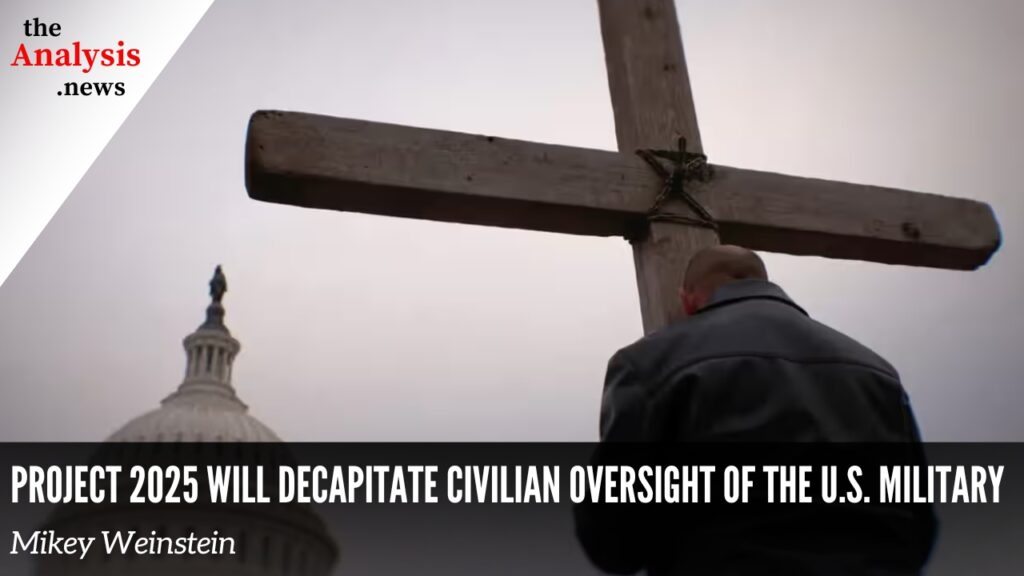


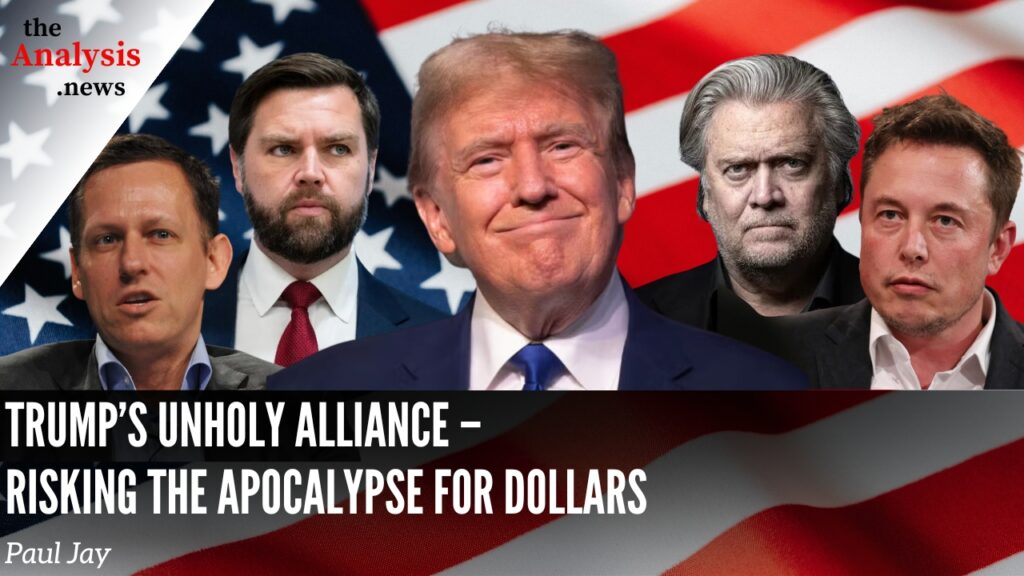
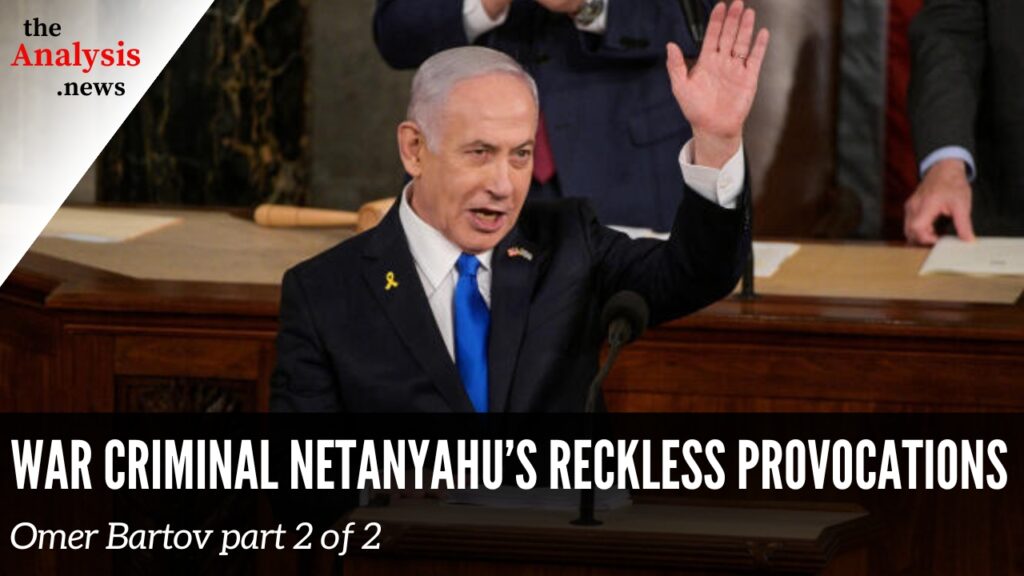

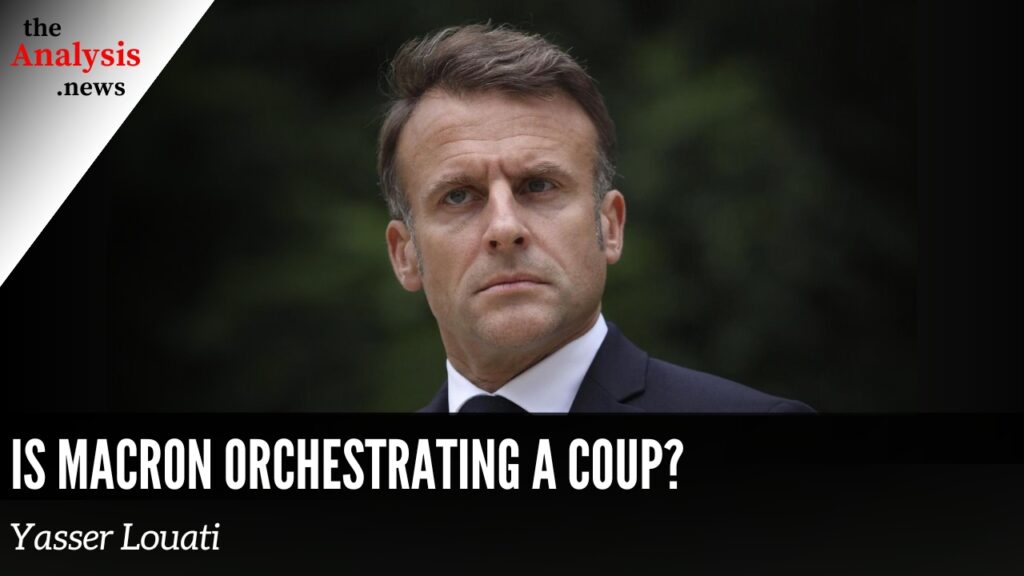


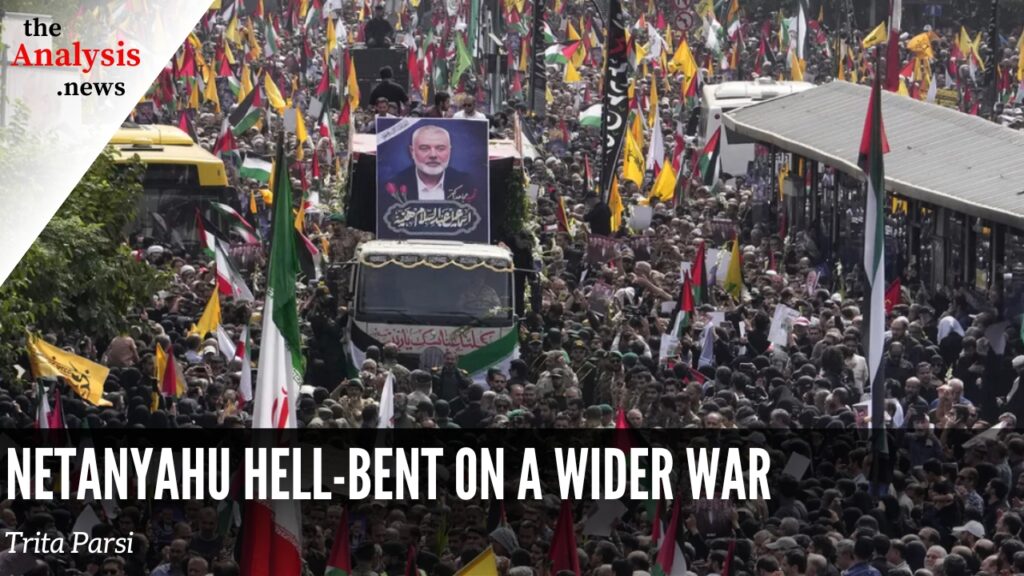
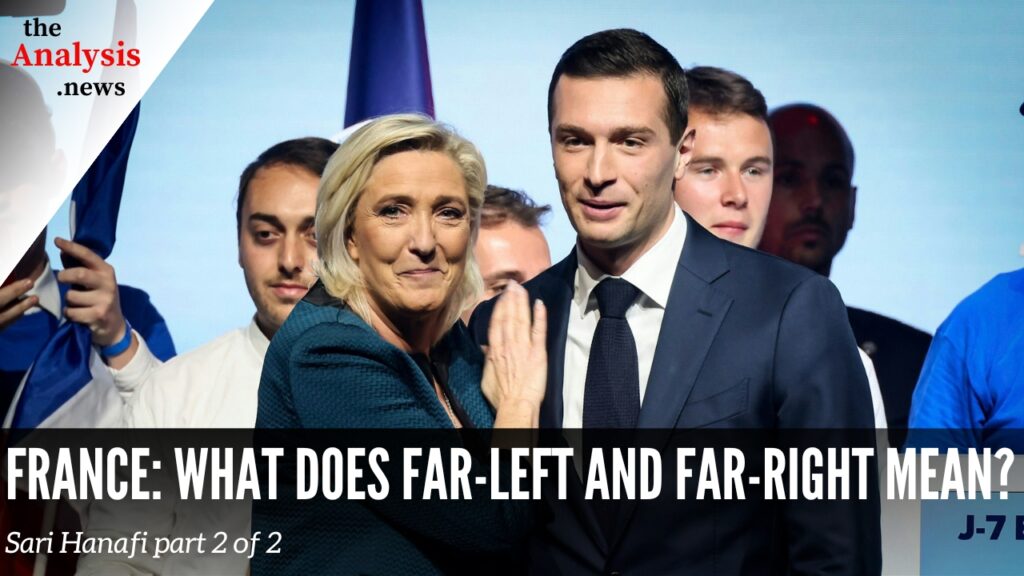

Re: Talia Baroncelli’s interview with Dr. Shireen Al-Adeimi…1) Trying to understand Biden’s motives for his genocidal behavior is something for the Psychoanalysts, but in spite of a risk of being accused of idle speculation, I would posit that he has some kind of sick hero-worship of Netanyahu…I even think he’s imitating Netanyahu’s targeting of civilian people and infrastructure by the recent strikes inside Yemen on civilians and infrastructure, e.g., the airports–he’s coming close to jumping right into the thick of it with the Zionists. It feels to me that our government is being ruled by the Zionist entity, and we’re living under an authoritarian dictatorship right now, as we have taxation with no representation, and fascistic suppression of a voice. 2) I was so heartened by the bravery and solidarity shown by the Houthis when they unilaterally set up the blockade in the Red Sea. 3) The Sumud of the Palestinian people is awe-inspiring in the face of such evil that is being done them. THIS MUST END!
I fully agree with SKMcW’s comments above. A few other thoughts. I have been following the Palestine- Israel issues since 1940 with my Jewish friends and relatives. A couple of important issues that I don’t think get covered often. My Jewish friends claim that their ancestors do not come from Palestine; they are “German” Jews originally from North-East Europe, or “Spanish” Jews from Western North Africa and Spain. They claimed the Zionists worked with Hitler to eliminate “progressive” and “democratic” Jews, and send the Fascist Jews to Palestine. They claimed that the Christian – Jewish conflict went back to the ancient conflicts between the Romans and Greeks. There were several reasons the Europeans supported a Jewish state over the last 125 years, including getting jews which many had prejudices against, out of Europe, establishing a “U S Battleship” to protect U S oil interests in the Middle East (President Wilson), and most importantly continuing the “Forever Wars”, not in North America of course, Dozens of wars elsewhere which were so financially beneficial to the U S Military, Industrial, Political, Financial, Media Complex, which seems to be the real Government of the US.